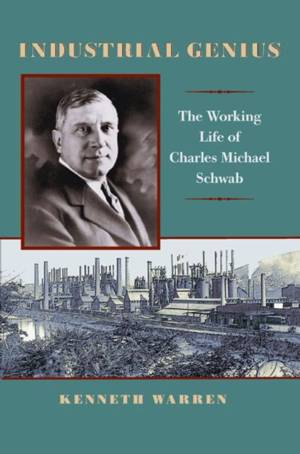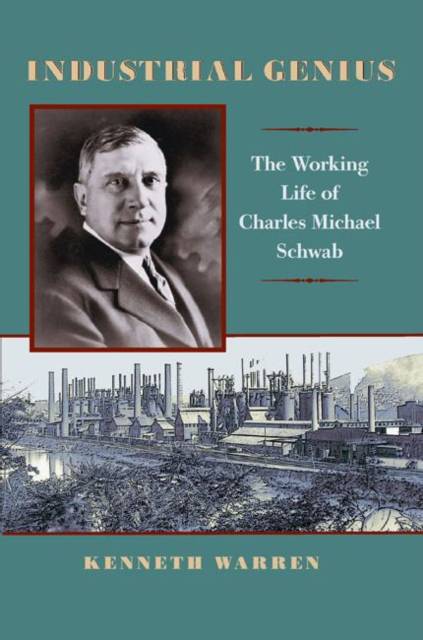
Bedankt voor het vertrouwen het afgelopen jaar! Om jou te bedanken bieden we GRATIS verzending (in België) aan op alles gedurende de hele maand januari.
- Afhalen na 1 uur in een winkel met voorraad
- In januari gratis thuislevering in België
- Ruim aanbod met 7 miljoen producten
Bedankt voor het vertrouwen het afgelopen jaar! Om jou te bedanken bieden we GRATIS verzending (in België) aan op alles gedurende de hele maand januari.
- Afhalen na 1 uur in een winkel met voorraad
- In januari gratis thuislevering in België
- Ruim aanbod met 7 miljoen producten
Zoeken
€ 91,95
+ 183 punten
Omschrijving
Charles Schwab was known to his employees, business associates, and competitors as a congenial and charismatic person-a 'born salesman.' Yet Schwab was much more than a salesman-he was a captain of industry, a man who streamlined and economized the production of steel and ran the largest steelmaking conglomerate in the world. A self-made man, he became one of the wealthiest Americans during the Gilded Age, only to die penniless in 1939.
Schwab began his career as a stake driver at Andrew Carnegie's Edgar Thomson steel works in Pittsburgh at the age of seventeen. By thirty-five, he was president of Carnegie Steel. In 1901, he helped form the U.S. Steel Corporation, a company that produced well over half the nation's iron and steel. In 1904, Schwab left U.S. Steel to head Bethlehem Steel, which after twelve years under his leadership, became the second-largest steel producer in America. President Woodrow Wilson called on Schwab to head the Emergency Fleet Corporation to produce merchant ships for the transport of troops and materials abroad during World War I.
Kenneth Warren presents a compelling biography that chronicles the startling success of Schwab's business career, his leadership abilities, and his drive to advance steel-making technology and operations. Through extensive research and use of previously unpublished archival documentation, Warren offers a new perspective on the life of a monumental figure--a true visionary--in the industrial history of America.
Schwab began his career as a stake driver at Andrew Carnegie's Edgar Thomson steel works in Pittsburgh at the age of seventeen. By thirty-five, he was president of Carnegie Steel. In 1901, he helped form the U.S. Steel Corporation, a company that produced well over half the nation's iron and steel. In 1904, Schwab left U.S. Steel to head Bethlehem Steel, which after twelve years under his leadership, became the second-largest steel producer in America. President Woodrow Wilson called on Schwab to head the Emergency Fleet Corporation to produce merchant ships for the transport of troops and materials abroad during World War I.
Kenneth Warren presents a compelling biography that chronicles the startling success of Schwab's business career, his leadership abilities, and his drive to advance steel-making technology and operations. Through extensive research and use of previously unpublished archival documentation, Warren offers a new perspective on the life of a monumental figure--a true visionary--in the industrial history of America.
Specificaties
Betrokkenen
- Auteur(s):
- Uitgeverij:
Inhoud
- Aantal bladzijden:
- 304
- Taal:
- Engels
Eigenschappen
- Productcode (EAN):
- 9780822961994
- Verschijningsdatum:
- 30/09/2011
- Uitvoering:
- Paperback
- Formaat:
- Trade paperback (VS)
- Afmetingen:
- 155 mm x 234 mm
- Gewicht:
- 408 g

Alleen bij Standaard Boekhandel
+ 183 punten op je klantenkaart van Standaard Boekhandel
Beoordelingen
We publiceren alleen reviews die voldoen aan de voorwaarden voor reviews. Bekijk onze voorwaarden voor reviews.









